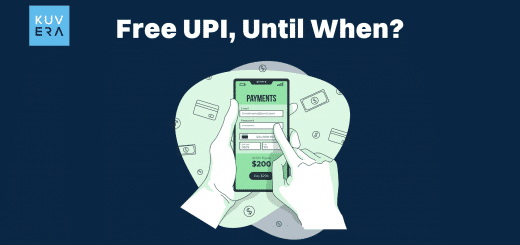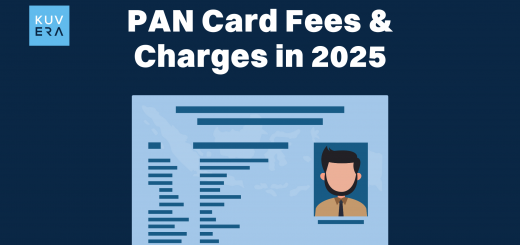Searching “UPI ID meaning” on Google? You might already be aware of the UPI ID meaning. A UPI ID (Unified Payments Interface ID), also known as Virtual Payment Address (VPA), is a unique identifier used in India’s digital payment system to facilitate seamless transactions. It links your bank account to the UPI payment system and allows you to send and receive money through various UPI-enabled apps like Google Pay, PhonePe, Paytm and others. With UPI ID, you can transact without sharing sensitive information like your bank account number, IFSC or the recipient’s name.
So, now you know about the UPI ID meaning. The UPI ID format typically looks like “yourname@ybl” or “90876543@okicici,” where “yourname” may be your name, email address or mobile number and the “@ybl” or “@okicici” parts indicate the initials of your respective bank.
Let’s look at UPI ID meaning, how to create it, usage and features.
How to Create a UPI ID
Step 1: Download a UPI-Enabled App
Install a UPI-enabled app such as Google Pay, PhonePe, Paytm, or the BHIM app. Download and install the app from your device’s app store.
Step 2: Sign Up or Log In
Open the app and sign up with your mobile number. Ensure the number is linked to your bank account.
Step 3: Verify Mobile Number
The app will verify your mobile number through an OTP (One-Time Password) sent to your phone.
Step 4: Link Bank Account
Select your bank from the list of supported banks. The app will automatically detect your bank account linked to your mobile number.
Step 5: Create a UPI ID
Choose a UPI ID that usually follows the format yourname@bankname (e.g., johnsmith@upi). Some apps offer predefined UPI IDs.
Step 6: Setup PIN
Create a 4 or 6-digit UPI PIN to authorise transactions. You may need to enter your debit card details to set up your UPI PIN.
Step 7: Complete the Setup
Follow any additional prompts to complete the setup process.
Start investing in Index Funds.
How to Find Your UPI ID
Your UPI ID is crucial for making digital transactions, and knowing how to locate it ensures smooth and efficient financial operations.
Option 1: Using UPI Apps
- Google Pay:
- Open the Google Pay app.
- Tap your profile picture or the icon at the top right corner.
- Your UPI ID will be displayed under your profile details.
- PhonePe:
- Open the PhonePe app.
- Tap on your profile icon at the top left corner.
- Select “My Money” from the menu.
- Under the “Payment Methods” section, your UPI ID will be listed.
- Paytm:
- Open the Paytm app.
- Tap on your profile icon or “Profile” at the top left corner.
- Go to “UPI & Bank Accounts.”
- Your UPI ID will be displayed here.
- BHIM App:
- Open the BHIM app.
- Tap on the “Profile” option.
- Your UPI ID will be visible under your profile information.
Which #UPI app do you think will dominate the market? Tell us what you think 👇#chartoftheday pic.twitter.com/a7BejlOwkY
— Kuvera (@Kuvera_In) August 28, 2024
Option 2: Via SMS or Email
Some UPI apps send you an SMS or email when you create your UPI ID or make transactions. You can check your inbox for any messages from your UPI app that include your UPI ID.
Option 3: Contact Customer Support
If you have trouble finding your UPI ID through the app, you can contact customer support for the UPI app provider for assistance.
How to Send Money Using UPI ID
To send money using a UPI ID, you first need the recipient’s UPI ID. Make sure to obtain this from the recipient beforehand to ensure a smooth transaction. Once you have their UPI ID, follow these steps:
Step 1: Launch the app you use for UPI transactions, such as Google Pay, PhonePe or Paytm.
Step 2: Look for an option labelled “Send Money,” “Pay UPI ID,” or something similar in your app.
Step 3: Input the UPI ID you received from the recipient.
Step 4: Select the bank account from which you wish to make the payment and tap “Proceed.”
Step 5: Enter the amount of money you want to send.
Step 6: You can include a note or message with the payment if desired.
Step 7: Review the details of your transaction including the recipient’s UPI ID and the amount.
Step 8: Confirm the transaction and enter your UPI PIN linked to the selected bank account.
The money will be transferred instantly to the recipient’s account.
Offline UPI Transactions
Offline UPI transactions allow payments without an active internet connection, making them highly beneficial in areas with limited or unstable internet access. This feature supports transactions through basic mobile phones and in environments where internet connectivity is unavailable. It offers a convenient and reliable alternative for making payments without relying on online services, ensuring financial inclusivity and ease of use in various settings.
However, offline methods may not support all UPI features available online and not all banks or UPI apps may support offline transaction methods.
Methods for Offline UPI Transactions
The offline transactions can be done in the following ways:
1. Unstructured Supplementary Service Data (USSD) Based Transactions
It is a protocol used to conduct transactions over SMS. This method does not require internet access and is ideal for basic mobile phones.
- Dial a USSD code provided by your bank (e.g., *99#).
- Follow the prompts to select UPI services.
- Enter the required details, such as the recipient’s UPI ID and the amount.
- Confirm the transaction by entering your UPI PIN.
2. QR Code Payments
Some UPI apps offer QR code-based payments that can be used offline once the QR code is generated and shared.
- The recipient generates a QR code linked to their UPI ID.
- The sender scans the QR code using their UPI app.
- The transaction details are pre-filled based on the QR code.
- The sender enters their UPI PIN to complete the payment.
3. SMS-Based Transactions
Some banks support SMS-based UPI transactions where users send an SMS to initiate and authorise payments.
- Send an SMS to a designated number with details like the recipient’s UPI ID, amount, and your UPI PIN.
- The bank processes the transaction based on the SMS instructions.
Features of UPI Payments
UPI payment apps offer a simple solution to a key problem by integrating several valuable features:
1. Reliability
UPI, powered by NPCI, ensures secure and dependable payment transfers. It minimises the risk of money loss due to internet disruptions or issues with websites, enhancing the overall safety of transactions.
2. Real-Time Transfers
A standout feature of UPI is its capability for real-time transfers. Payments are processed within seconds, making it easy to handle everyday tasks like grocery shopping or settling debts with friends.
3. Inclusivity
UPI supports inclusivity by enabling transactions even without a smartphone or internet connection. This accessibility allows people from various backgrounds to engage in digital payments. Additionally, regional language support further simplifies the process for users.
4. No Minimum Transaction Limit
UPI transactions have no minimum limit, making it ideal for small payments. Furthermore, UPI transactions are currently free of transaction charges, adding to the convenience and cost-effectiveness of using the platform.
Did you know that you can use UPI for making lumpsum payments on Kuvera? Explore funds here.
Wrapping Up
UPI transactions are efficient, simple and safe due to several reasons. They can also help you reduce the need for carrying cash and change. By knowing everything about UPI ID meaning, set-up, usage and features, you can utilise the payment method to the fullest.
Interested in how we think about the markets?
Read more: Zen And The Art Of Investing
Watch here: Investing In Passive Funds
Start investing through a platform that brings goal planning and investing to your fingertips. Visit kuvera.in to discover Direct Plans of Mutual Funds and Fixed Deposits and start investing today.
AREVUK Advisory Services Pvt Ltd | SEBI Registration No. INA200005166
DISCLAIMER: Mutual Fund investments are subject to market risks. Read all scheme related documents carefully. Registration granted by SEBI, membership of BASL (in case of IAs) and certification from NISM in no way guarantee performance of the intermediary or provide any assurance of returns to investors. Investments in securities market are subject to market risks. Read all the related documents carefully before investing. The securities quoted are for illustration only and are not recommendatory.












